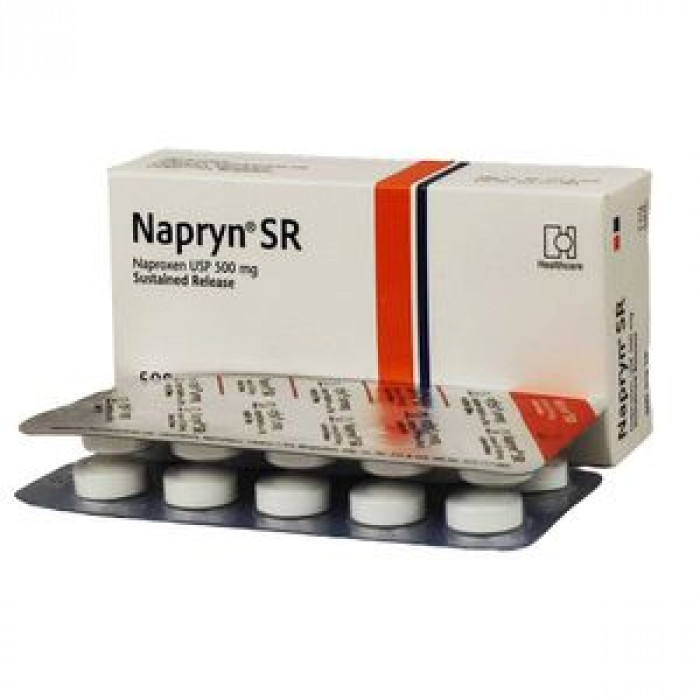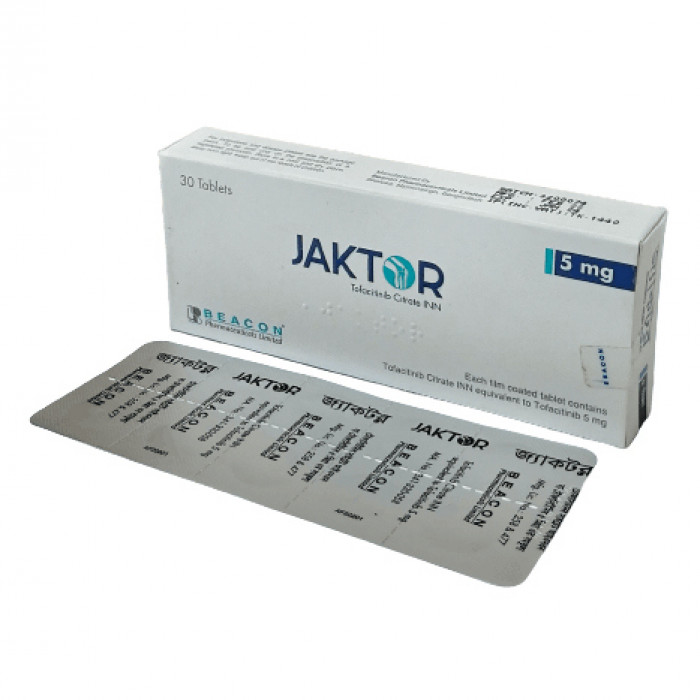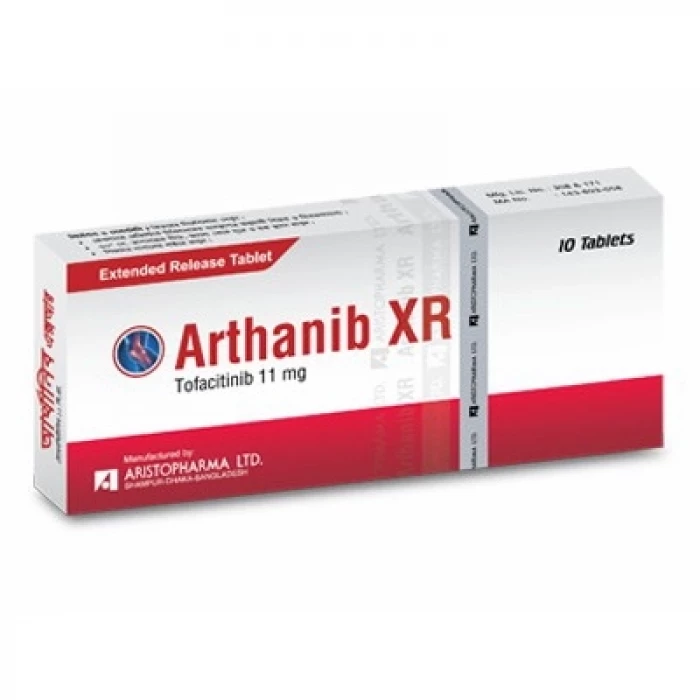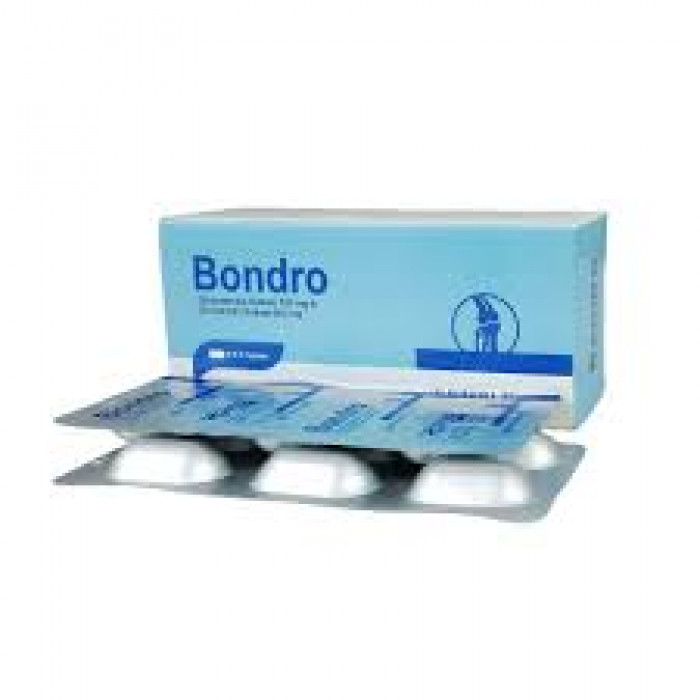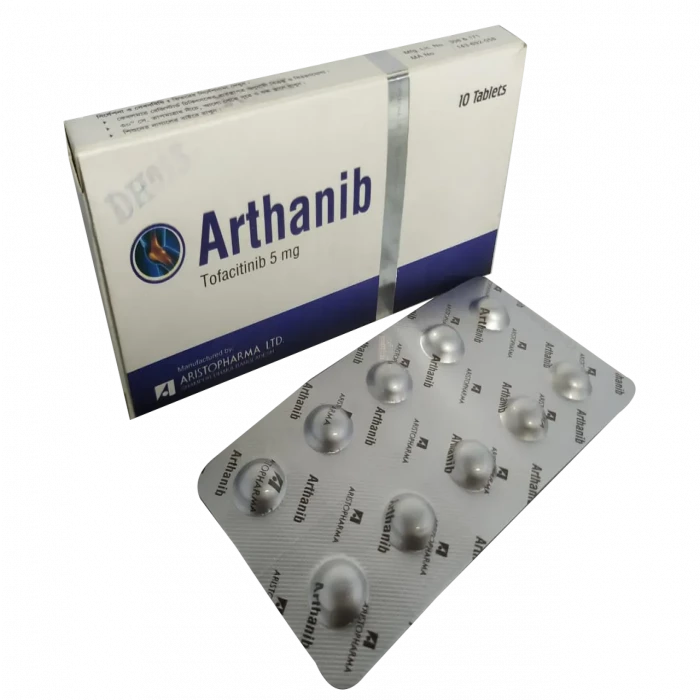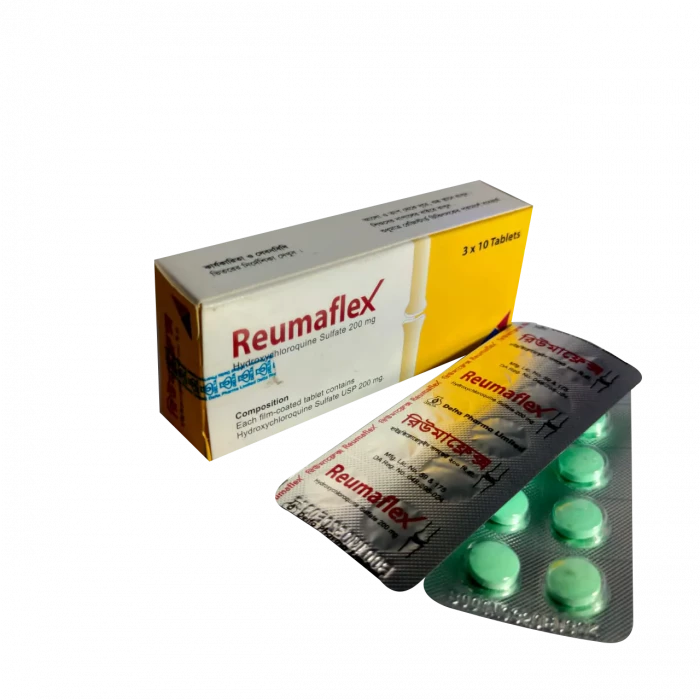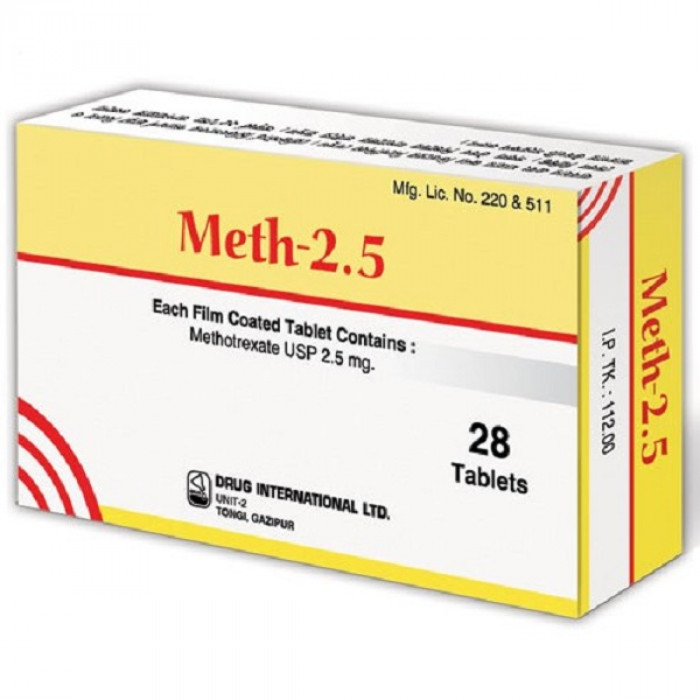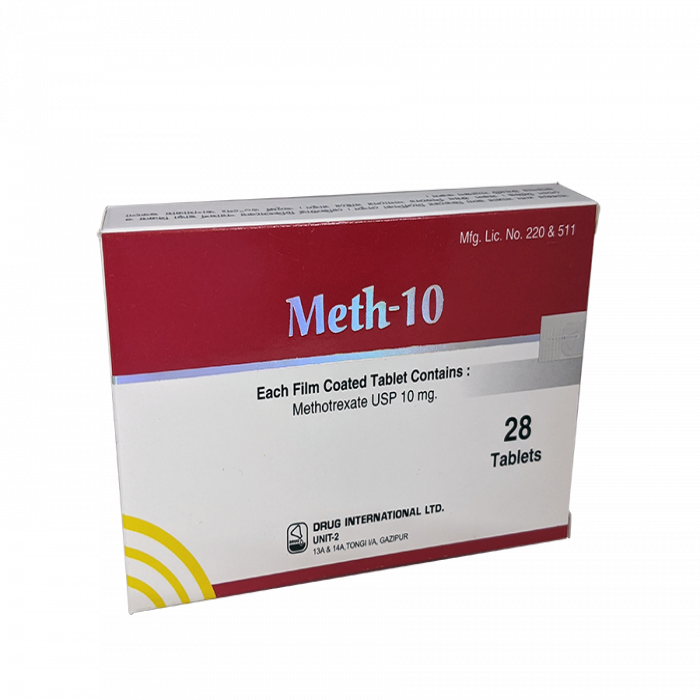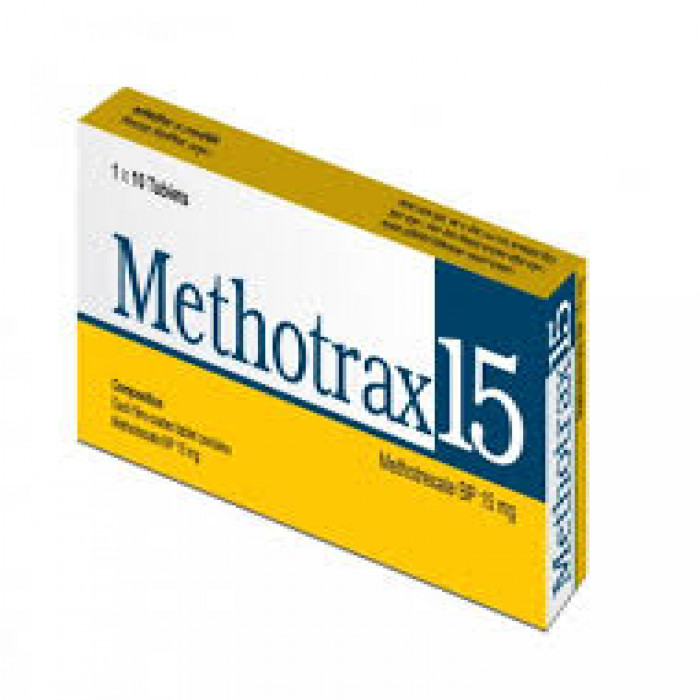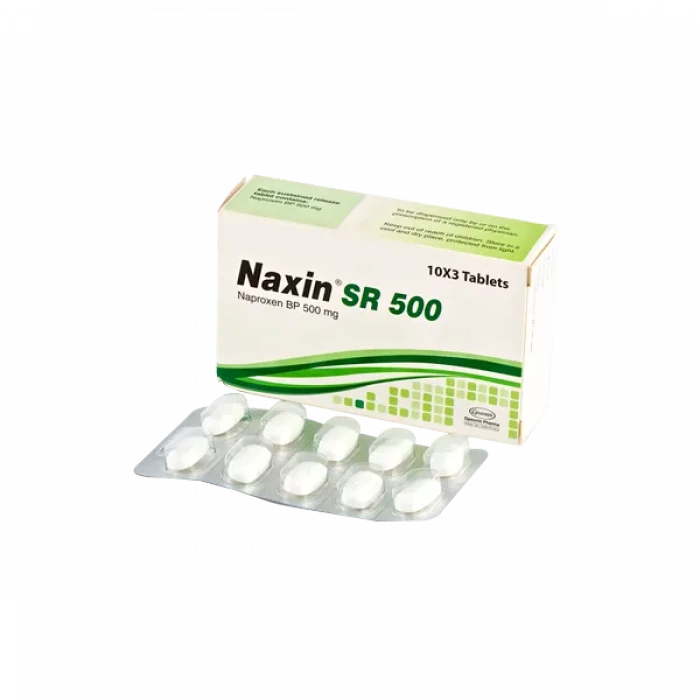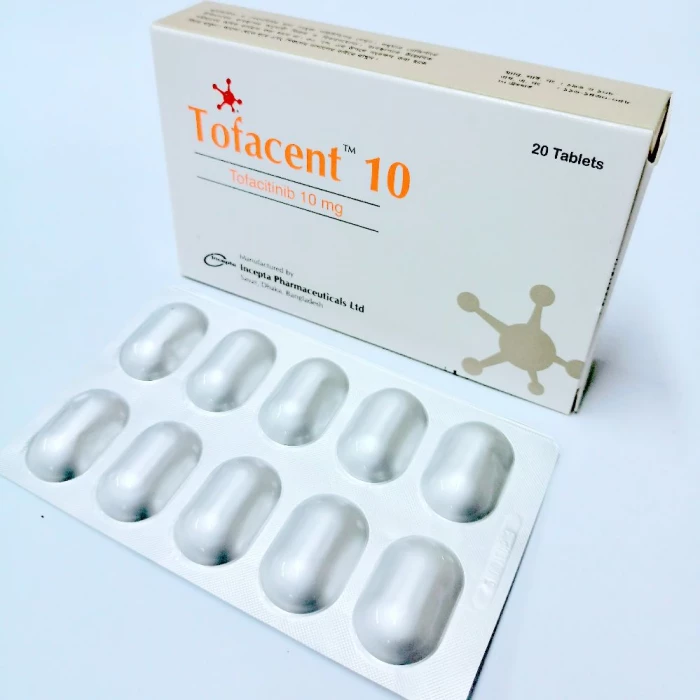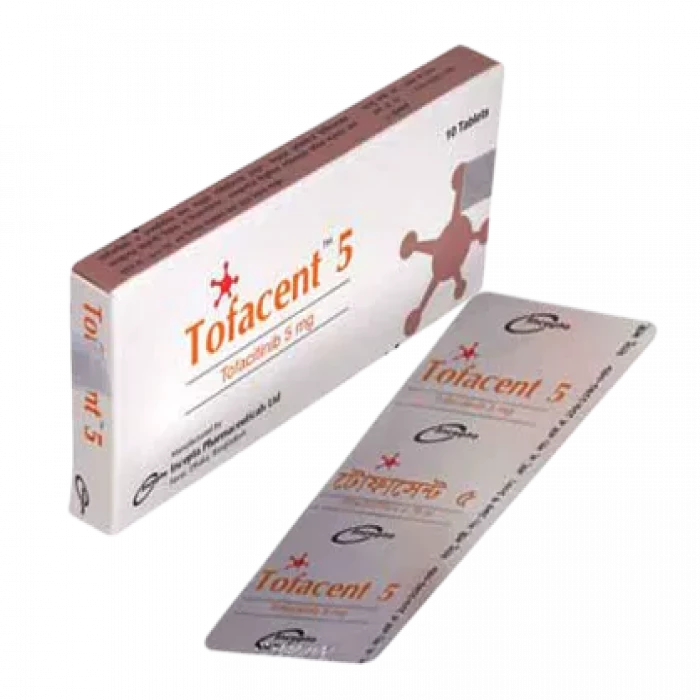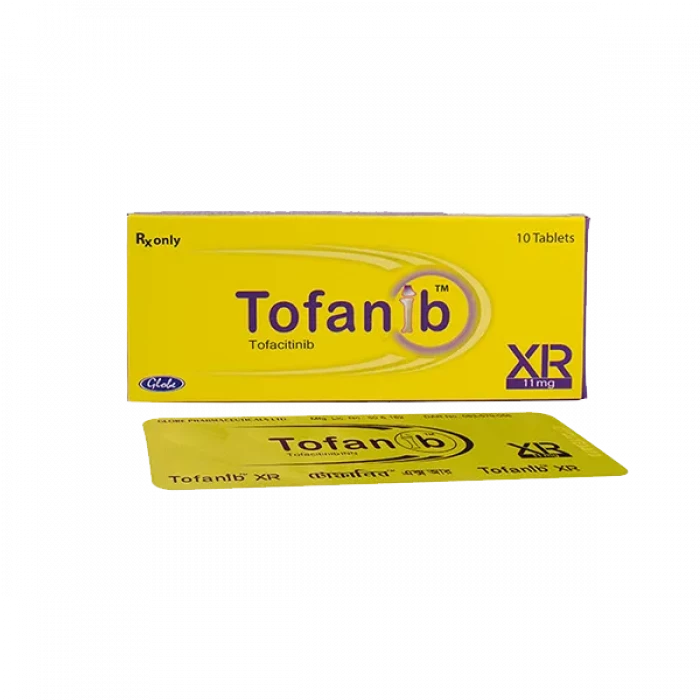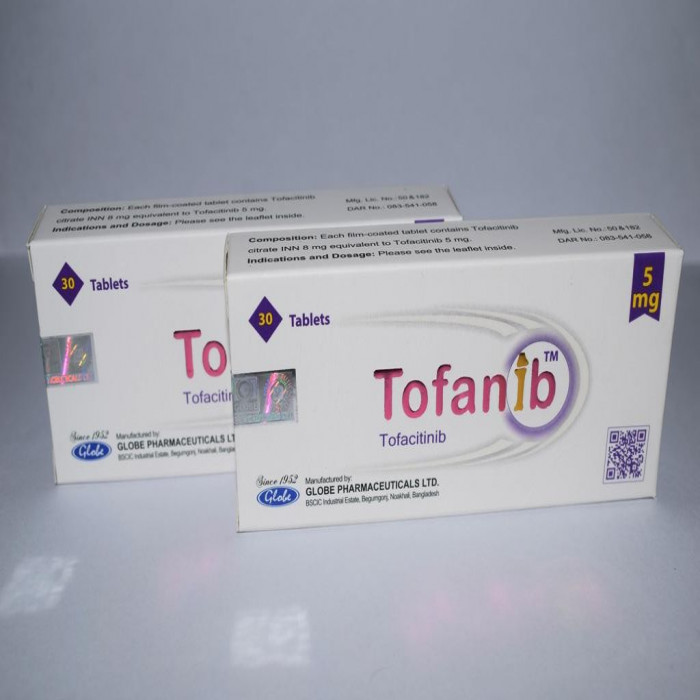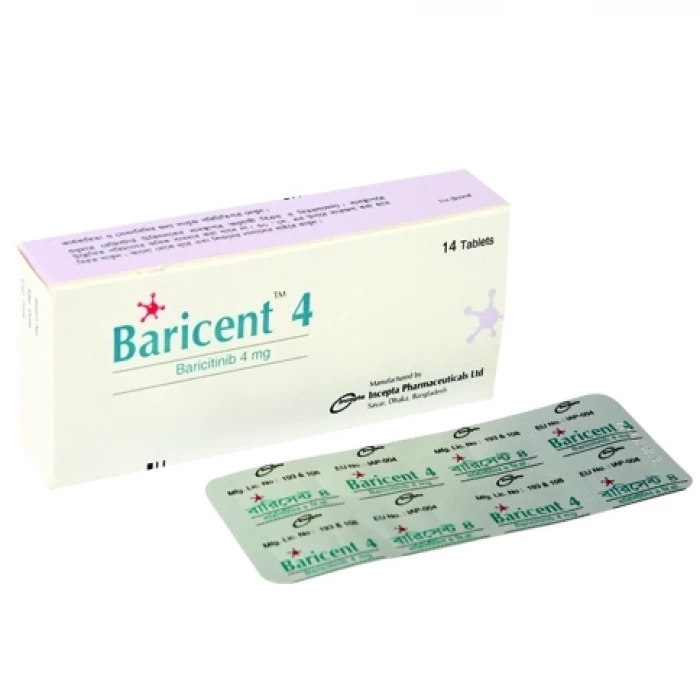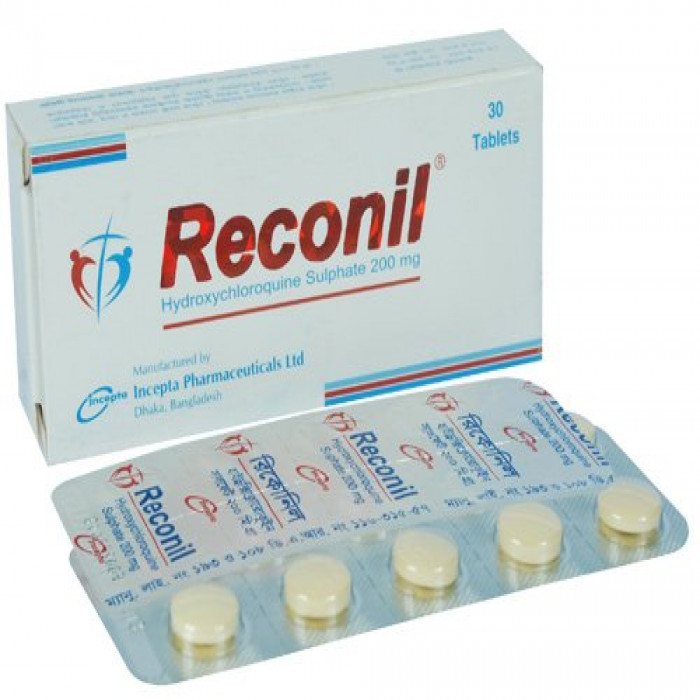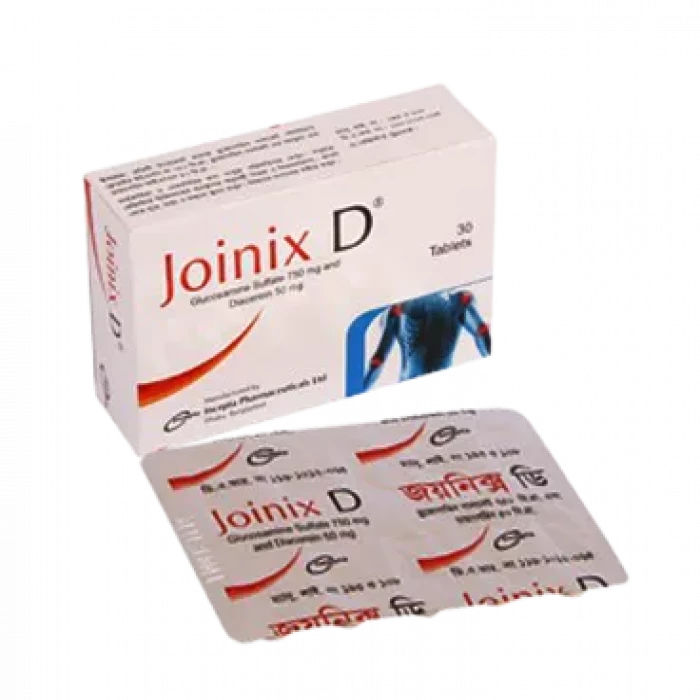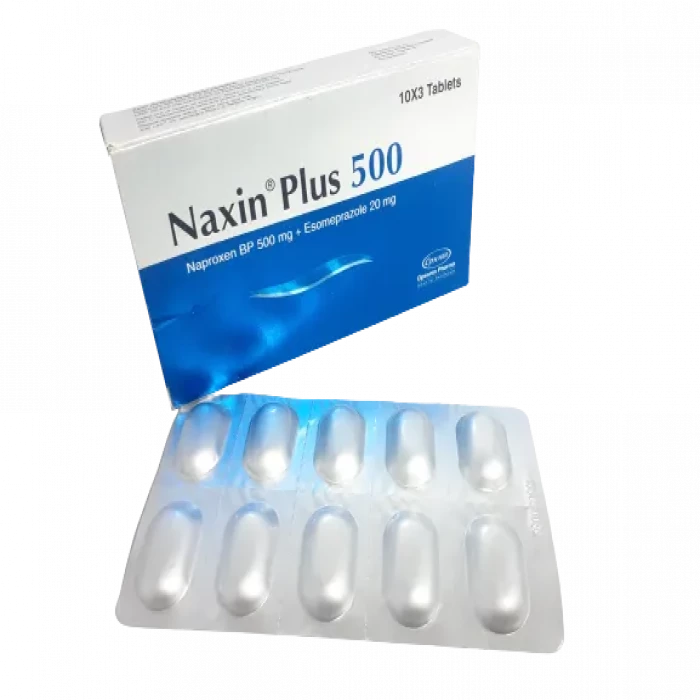
✔ 100% Authentic Product
👁️ Currently Viewing 2396
✅ Description:
Indications
Naproxen is used to treat rheumatoid arthritis, osteoarthritis, ankylosing spondylitis, juvenile arthritis, tendonitis, bursitis, and acute gout. It is also recommended for the treatment of primary dysmenorrhea and discomfort.
Pharmacology
Naproxen is an anti-inflammatory, analgesic, and antipyretic nonsteroidal anti-inflammatory medication (NSAID). It is readily absorbed from the gastrointestinal system and has a bioavailability of 95%.
Dosage & Administration
Naproxen Tablet-
Rheumatoid arthritis, osteoarthritis and ankylosing spondylitis: The usual dose is 500-1000 mg daily in two divided doses after meals.
Management of pain, primary dysmenorrhea, acute tendonitis & bursitis: Recommended starting dose is 500 mg followed by 500 mg every 12 hours or 250 mg every 6-8 hours. The initial total daily dose should not exceed 1250 mg and thereafter, the total daily dose should not exceed 1000 mg.
Acute gout: Recommended starting dose is 750 mg followed by 250 mg every 8 hours until the attack has subsided.
Naproxen Suspension-
For Juvenile rheumatoid arthritis: The usual dose for children over 2 years is 10 mg/kg/day given as two divided doses at 12-hours intervals. Therapy in children under 2 years of age is not recommended.
Naproxen Gel-
Is to be applied 2-6 times a day as required and is not recommended for use in children.
Interaction
ACE inhibitors: ACE inhibitors have a reduced antihypertensive impact.
Naproxen absorption is slowed by antacids and sucralfate.
Aspirin: worsens the side effects.
Furosemide and Thiazides' natriuretic action is reduced by diuretics.
Methotrexate: increases Methotrexate toxicity.
Warfarin: raises the risk of gastrointestinal bleeding.
SSRIs (Selective Serotonin Reuptake Inhibitors): increase the risk of GI bleeding.
Contraindications
Naproxen is not recommended for people who have a history of hypersensitivity to the drug. Patients who have had asthma, urticaria, or allergic-type responses after taking aspirin or other NSAIDs should not be given it. It is not recommended for the management of perioperative pain after coronary artery bypass graft (CABG) surgery.
Side Effects
The following are the most frequently reported adverse effects:
Gastrointestinal symptoms include heartburn, stomach discomfort, nausea, diarrhea, and dyspepsia.
Headache, vertigo, and sleepiness are symptoms of the Central Nervous System.
Dermatological conditions include pruritus (itching) and purpura.
Cardiovascular symptoms include edema and palpitation.
Other symptoms include visual and auditory problems.
Pregnancy & Lactation
Naproxen is classified as pregnancy category C by the US Food and Drug Administration. As a result, unless the potential advantages to the other outweigh the potential dangers to the unborn, Naproxen should be avoided during pregnancy and breastfeeding.
Precautions & Warnings
Patienls with known CV disease/risk factors may be at greater risk. Naxin@ Plus should be used with caution in patients with fluid retention or heart failure
Storage Conditions
Maintain a temperature of less than 30°C and keep it away from light and moisture. Keep out of children's reach.
⚠️Disclaimer:
At ePharma, we’re committed to providing accurate and accessible health information. However, all content is intended for informational purposes only and should not replace medical advice from a qualified physician. Please consult your healthcare provider for personalized guidance. We aim to support, not substitute, the doctor-patient relationship.




